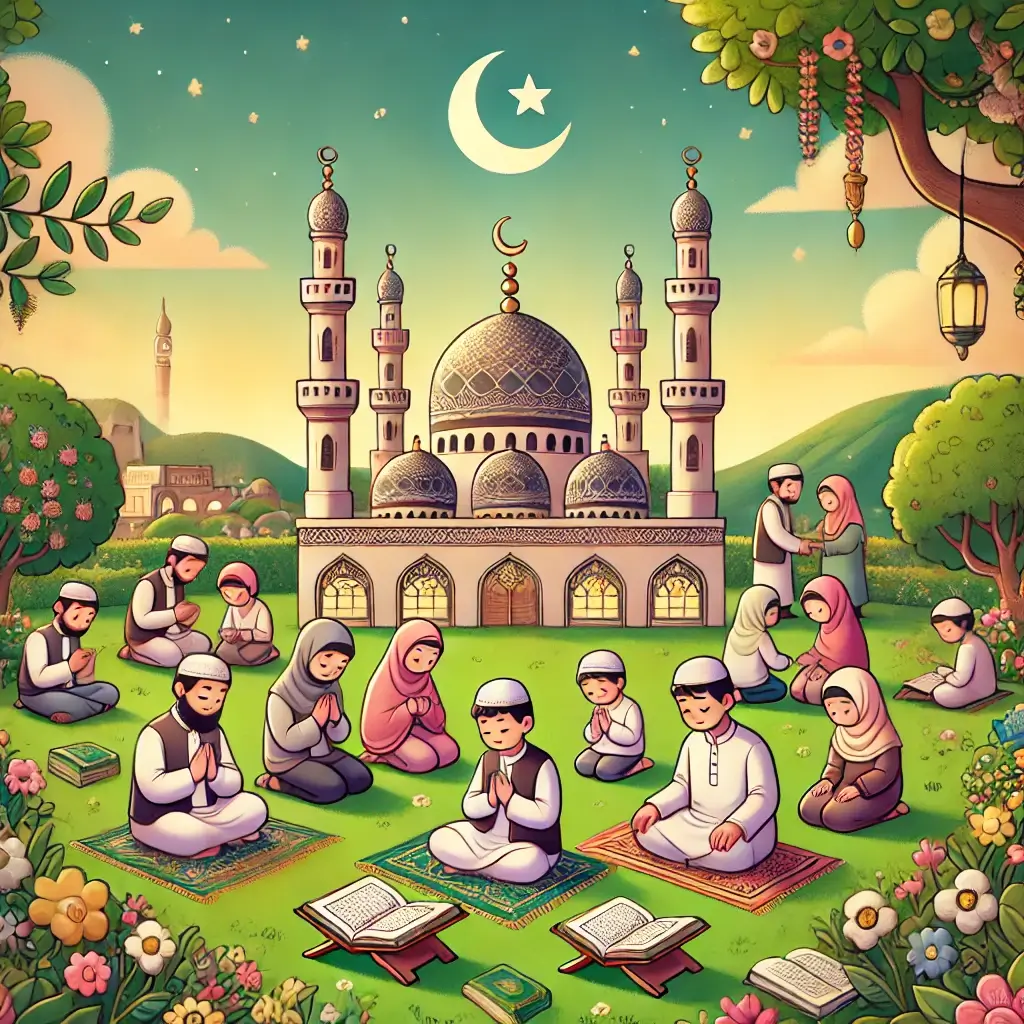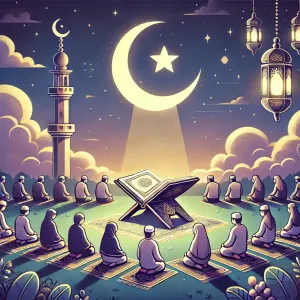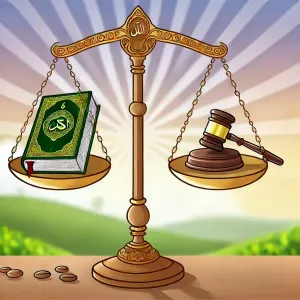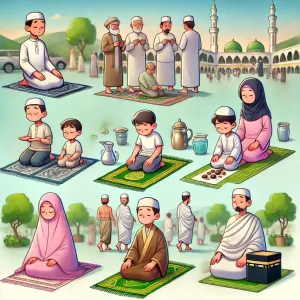Islam is one of the world's major religions, practiced by over 2 billion people globally. It is not merely a set of beliefs or rituals but a comprehensive way of life that addresses every aspect of existence, from personal spirituality to social justice. The word Islam comes from the Arabic root "S-L-M," which means peace, purity, submission, and obedience. In a religious context, it means "submission to the will of Allah (God)".
This article will explore what Islam is, its core beliefs and practices, and how it shapes the lives of its followers. We’ll also address common questions about Islam and dispel some common misconceptions about this rich and multifaceted religion.

The Meaning of Islam
The term "Islam" is derived from the Arabic root "S-L-M," which is also the root of the word Salaam, meaning peace. In the Islamic context, Islam means submitting to the will of Allah to achieve peace within oneself and with the world. Muslims, the followers of Islam, believe that true peace can only be attained by surrendering to the divine will and living in harmony with God's guidance.
Islam is not a new religion; rather, it is the continuation of the same monotheistic tradition that began with the first human, Adam, and was reaffirmed through the prophets, including Noah, Abraham, Moses, Jesus, and finally, Muhammad(peace be upon them all). Muslims believe that Muhammad (peace be upon him) was the final prophet and that Islam is the last and complete message from God to humanity.
The Core Beliefs of Islam: The Six Articles of Faith
Islam is based on six fundamental beliefs known as the Six Articles of Faith. Every Muslim must believe in these core tenets:
- Belief in Allah: The central belief in Islam is the absolute oneness of Allah. Muslims believe that Allah is the one true God, the Creator and Sustainer of the universe. He is unique, with no partners, children, or equals. Muslims reject any form of polytheism or the association of partners with Allah (known as Shirk).
- Belief in Angels: Muslims believe in the existence of angels, who are created by Allah to perform specific tasks. Angels are made of light and are obedient to Allah’s commands. They play various roles, including delivering revelations to the prophets, recording human deeds, and administering divine justice.
- Belief in the Divine Books: Islam teaches that Allah revealed scriptures to His prophets as guidance for humanity. These include the Torah, revealed to Moses, the Psalms to David, the Gospel to Jesus, and finally, the Quran to Muhammad (peace be upon them all). Muslims believe that while the earlier scriptures were originally divine, they were altered over time. The Quran is considered the final, unaltered revelation.
- Belief in the Prophets: Muslims believe in all the prophets sent by Allah, including Adam, Noah, Abraham, Moses, Jesus, and Muhammad. Each prophet was sent to guide their people to worship Allah alone. Muhammad is considered the last prophet, and his life and teachings are examples for all humanity.
- Belief in the Day of Judgment: Islam teaches that this world is temporary and that every soul will be resurrected on the Day of Judgment. On that day, Allah will judge every individual based on their deeds, and they will either enter Paradise (Jannah) or Hell (Jahannam), depending on their actions and faith.
- Belief in Divine Decree (Qadar): Muslims believe that everything happens by Allah’s will and decree. This belief does not negate free will; instead, it emphasizes that Allah's knowledge and power encompass everything, and nothing occurs outside His divine plan.
The Five Pillars of Islam: Foundations of Muslim Life
The practice of Islam is built upon five acts of worship known as the Five Pillars. These pillars are not only religious obligations but also serve to connect a Muslim's faith with their daily life. The Five Pillars are as follows:
- Shahada (Faith): The Shahada is the testimony of faith, the declaration that “There is no god but Allah, and Muhammad is His Messenger.” This is the most important pillar and is the foundation of all other beliefs and practices. By reciting the Shahada with sincerity, one becomes a Muslim.
- Salah (Prayer): Muslims are required to pray five times a day. These prayers are a direct link between the worshiper and Allah, serving as a reminder of one’s dependence on God. The prayers are performed at dawn, noon, mid-afternoon, sunset, and night, and they involve reciting verses from the Quran and specific movements.
- Zakat (Charity): Zakat is an obligatory form of charity that requires Muslims to give 2.5% of their wealth to those in need. This ensures the redistribution of wealth and helps reduce poverty and inequality in society. Zakat purifies one's wealth and encourages compassion and generosity.
- Sawm (Fasting during Ramadan): Every year during the Islamic month of Ramadan, Muslims fast from dawn to sunset. This fast includes abstaining from food, drink, smoking, and marital relations. Fasting serves to develop self-discipline, empathy for the poor, and spiritual reflection.
- Hajj (Pilgrimage to Mecca): Hajj is the pilgrimage to the holy city of Mecca, which every Muslim who is physically and financially able must perform at least once in their lifetime. Hajj takes place during the Islamic month of Dhul-Hijjah and is a profound act of worship that symbolizes unity, equality, and submission to Allah.
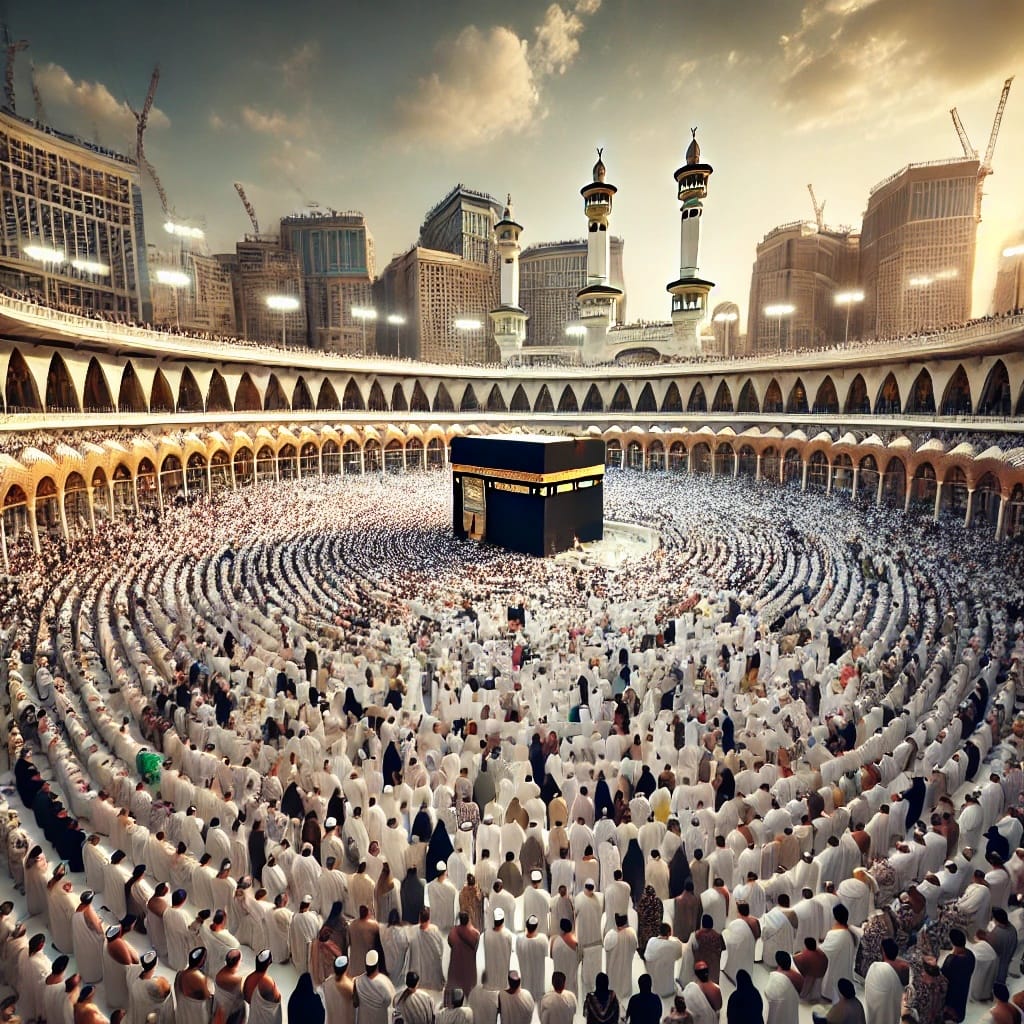
The Quran: The Holy Book of Islam
The Quran is the holy scripture of Islam and is believed to be the literal word of Allah, revealed to the Prophet Muhammad (peace be upon him) over a period of 23 years. It is written in classical Arabic and remains unchanged since it was revealed. The Quran consists of 114 chapters (known as Surahs) and addresses a wide range of topics, including theology, morality, law, and guidance for personal conduct.
Muslims regard the Quran as a miracle due to its linguistic perfection, depth of meaning, and the accuracy of its scientific and historical references, which have been confirmed by modern discoveries. The Quran serves as the ultimate guide for Muslims, offering a roadmap for living a righteous and fulfilling life.
Quranic Themes
Some of the key themes covered in the Quran include:
- Monotheism: The Quran emphasizes the oneness of Allah and urges humanity to worship Him alone.
- Prophethood: The stories of past prophets are recounted to offer lessons and guidance.
- Guidance for Life: The Quran provides ethical teachings on how to lead a moral life, including principles related to family, justice, charity, and honesty.
- The Afterlife: The Quran describes the reality of life after death, detailing the rewards of Paradise and the consequences of Hell.
The Quran is recited by millions of Muslims daily, and many strive to memorize it in its entirety—a practice known as Hifz. The Quran is recited during prayers and is often the source of comfort, guidance, and inspiration for Muslims facing life’s challenges.
The Prophet Muhammad: The Final Messenger
Prophet Muhammad (peace be upon him) was born in the city of Mecca in the year 570 CE. He is regarded as the last and final prophet in a long line of messengers sent by Allah to guide humanity. Muslims believe that Muhammad was chosen by Allah to deliver the final revelation, the Quran, which serves as a complete and universal message for all of humanity.
The Early Life of Prophet Muhammad
Muhammad was born into the Quraysh tribe, which was prominent in Mecca. His early life was marked by honesty, trustworthiness, and deep contemplation. He earned the title Al-Amin (the trustworthy) due to his integrity. At the age of 40, Muhammad began receiving revelations from Allah through the Angel Gabriel, marking the start of his prophetic mission.
The Message of Islam
The core of Muhammad’s message was the oneness of Allah, the rejection of idol worship, and the call to live a righteous and moral life. Over a period of 23 years, he faced opposition from the powerful leaders of Mecca but eventually succeeded in spreading Islam throughout the Arabian Peninsula.
The Sunnah: The Prophet’s Teachings
The Sunnah, or the teachings and practices of the Prophet Muhammad, is the second most important source of guidance for Muslims after the Quran. The Sunnah is preserved in collections of Hadith, which record the sayings, actions, and approvals of the Prophet.
The Prophet’s life serves as a model for Muslims to emulate, from his character traits like humility, generosity, and patience, to his instructions on how to conduct oneself in both personal and public life. His leadership, both as a spiritual guide and a political leader, laid the foundation for the Islamic community (Ummah) that continues to thrive today.
Islam and the Concept of Peace
Islam is often referred to as a religion of peace, and the word Islam itself is derived from the root word for peace. But what does peace mean in the Islamic context?
Inner Peace
Islam teaches that true inner peace can only be achieved through submission to Allah. By recognizing the greatness of Allah, accepting His will, and living according to His guidance, Muslims find peace within themselves. Acts of worship, such as prayer and fasting, help Muslims develop a sense of tranquility and contentment, knowing that Allah is always with them.
Peace with Others
Islam places a strong emphasis on compassion, justice, and kindness toward others. Muslims are encouraged to treat people of all faiths and backgrounds with respect and fairness. The Quran commands believers to be just, even in situations of conflict:
﴿۞ يَا أَيُّهَا الَّذِينَ آمَنُوا كُونُوا قَوَّامِينَ بِالْقِسْطِ شُهَدَاءَ لِلَّهِ وَلَوْ عَلَىٰ أَنفُسِكُمْ أَوِ الْوَالِدَيْنِ وَالْأَقْرَبِينَ ۚ إِن يَكُنْ غَنِيًّا أَوْ فَقِيرًا فَاللَّهُ أَوْلَىٰ بِهِمَا ۖ فَلَا تَتَّبِعُوا الْهَوَىٰ أَن تَعْدِلُوا ۚ وَإِن تَلْوُوا أَوْ تُعْرِضُوا فَإِنَّ اللَّهَ كَانَ بِمَا تَعْمَلُونَ خَبِيرًا﴾
[ النساء: 135]
"O you who have believed, be persistently standing firm in justice, witnesses for Allah, even if it be against yourselves or your parents and relatives."
(Quran 4:135)
In this way, Islam advocates for a society where peace and justice prevail, and where the rights of all people are upheld.
Islam and Social Justice
Social justice is a key principle in Islam. Through practices like Zakat (charity) and Sadaqah (voluntary giving), Muslims are required to assist the less fortunate, ensuring that wealth is distributed more equitably and that the needs of the poor are met. Islamic teachings encourage the establishment of a just society where the vulnerable are protected, and the powerful are held accountable.

Common Misconceptions About Islam
Islam is often misunderstood, especially in today’s world where misconceptions about the religion are widespread. Here, we’ll address some of the most common misconceptions:
1. Islam Promotes Violence
One of the most damaging misconceptions about Islam is that it promotes violence or terrorism. In reality, Islam strictly prohibits the taking of innocent life. The Quran teaches that killing one person unjustly is like killing all of humanity:
﴿مِنْ أَجْلِ ذَٰلِكَ كَتَبْنَا عَلَىٰ بَنِي إِسْرَائِيلَ أَنَّهُ مَن قَتَلَ نَفْسًا بِغَيْرِ نَفْسٍ أَوْ فَسَادٍ فِي الْأَرْضِ فَكَأَنَّمَا قَتَلَ النَّاسَ جَمِيعًا وَمَنْ أَحْيَاهَا فَكَأَنَّمَا أَحْيَا النَّاسَ جَمِيعًا ۚ وَلَقَدْ جَاءَتْهُمْ رُسُلُنَا بِالْبَيِّنَاتِ ثُمَّ إِنَّ كَثِيرًا مِّنْهُم بَعْدَ ذَٰلِكَ فِي الْأَرْضِ لَمُسْرِفُونَ﴾
[ المائدة: 32]
"Whoever kills a soul unless for a soul or for corruption [done] in the land - it is as if he had slain mankind entirely."
(Quran 5:32)
Islam advocates for peace, justice, and the protection of human life. The concept of Jihad, which is often misrepresented, primarily refers to the inner struggle to live a moral life and to strive for self-improvement. The lesser form of Jihad, which involves defending oneself or the community, is highly regulated and cannot involve the harming of innocents.
2. Islam Oppresses Women
Another common misconception is that Islam oppresses women. In fact, Islam grants women numerous rights, including the right to education, to own property, and to participate in social, political, and economic life. The Quran emphasizes the spiritual and moral equality of men and women:
﴿إِنَّ الْمُسْلِمِينَ وَالْمُسْلِمَاتِ وَالْمُؤْمِنِينَ وَالْمُؤْمِنَاتِ وَالْقَانِتِينَ وَالْقَانِتَاتِ وَالصَّادِقِينَ وَالصَّادِقَاتِ وَالصَّابِرِينَ وَالصَّابِرَاتِ وَالْخَاشِعِينَ وَالْخَاشِعَاتِ وَالْمُتَصَدِّقِينَ وَالْمُتَصَدِّقَاتِ وَالصَّائِمِينَ وَالصَّائِمَاتِ وَالْحَافِظِينَ فُرُوجَهُمْ وَالْحَافِظَاتِ وَالذَّاكِرِينَ اللَّهَ كَثِيرًا وَالذَّاكِرَاتِ أَعَدَّ اللَّهُ لَهُم مَّغْفِرَةً وَأَجْرًا عَظِيمًا﴾
[ الأحزاب: 35]
"Indeed, the Muslim men and Muslim women, the believing men and believing women... for them Allah has prepared forgiveness and a great reward."
(Quran 33:35)
Many of the restrictions placed on women in certain cultures are cultural practices, not Islamic teachings. Islam promotes the dignity, respect, and empowerment of women.
3. Islam Is Incompatible with Modern Science
Contrary to this misconception, Islam encourages the pursuit of knowledge and scientific discovery. The Quran itself contains verses that encourage reflection on the natural world and the pursuit of understanding:
﴿أَوَلَمْ يَنظُرُوا فِي مَلَكُوتِ السَّمَاوَاتِ وَالْأَرْضِ وَمَا خَلَقَ اللَّهُ مِن شَيْءٍ وَأَنْ عَسَىٰ أَن يَكُونَ قَدِ اقْتَرَبَ أَجَلُهُمْ ۖ فَبِأَيِّ حَدِيثٍ بَعْدَهُ يُؤْمِنُونَ﴾
[ الأعراف: 185]
"Do they not look into the realms of the heavens and the earth and everything that Allah has created?"
(Quran 7:185)
Islamic civilization made significant contributions to science, mathematics, medicine, and philosophy, particularly during the Golden Age of Islam.
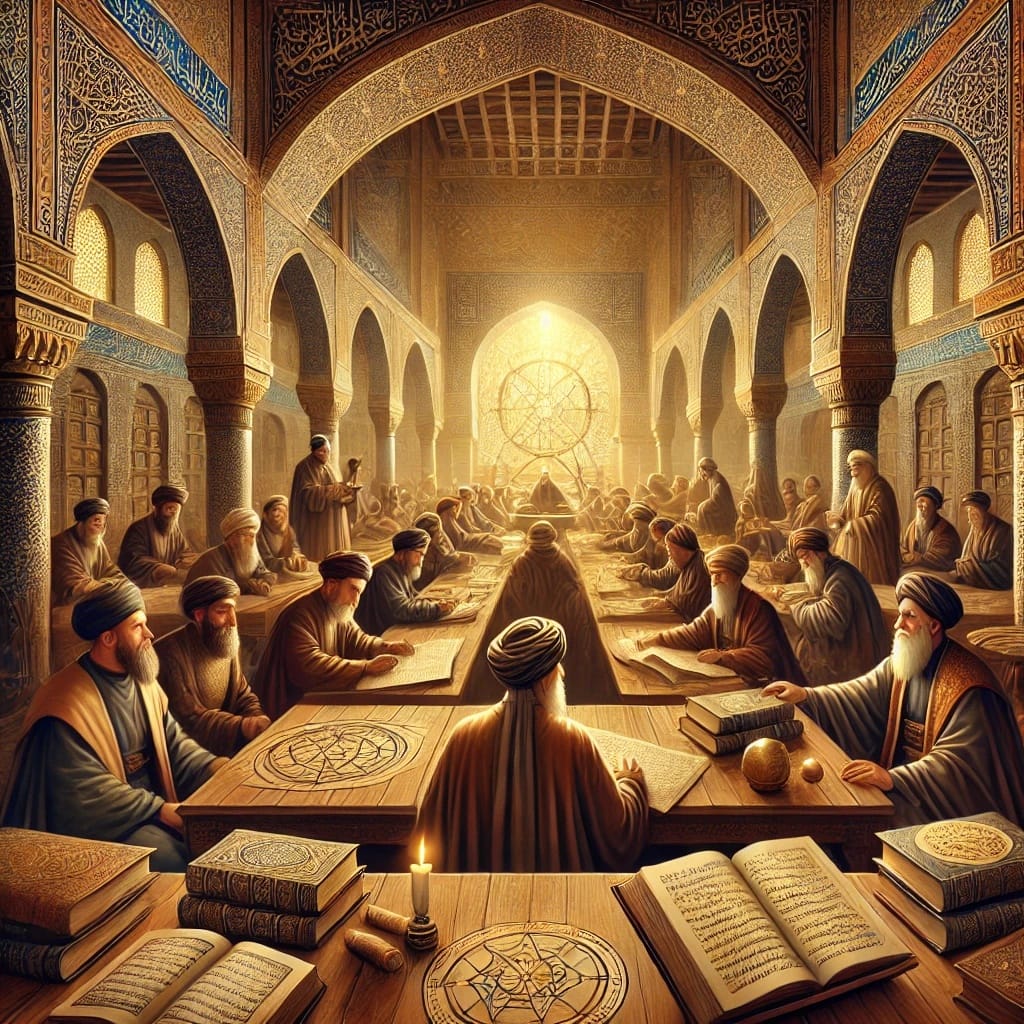
Conclusion
Islam is a religion that emphasizes the oneness of God, peace, justice, and compassion. Its core beliefs and practices offer guidance on how to live a life that is fulfilling, meaningful, and aligned with divine principles. For those seeking to understand Islam, it is essential to approach it with an open mind and heart, exploring its teachings in depth.
This article has provided a comprehensive introduction to Islam, its core beliefs, and its practices. By learning more about Islam, we can foster a greater sense of understanding, respect, and peace in our diverse world.
